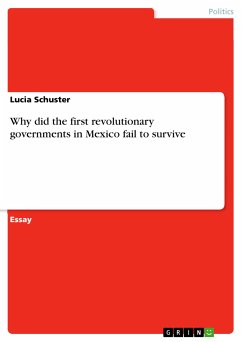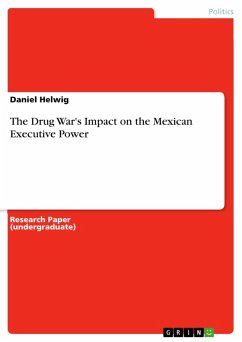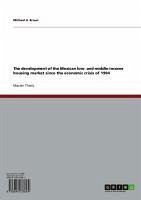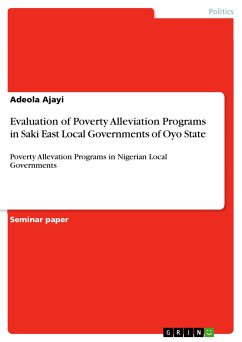Essay from the year 2002 in the subject Politics - Region: Middle and South America, grade: 1,3 (A), University of Southampton (Department of Politics), course: Mexico, language: English, abstract: In the years from 1911 to 1934 Mexico witnessed fifteen presidents1 appearing and vanishing after short periods of rule. The political, economic and social reasons for such a rapid change in governmental affairs will be discussed in this essay. Governments can be defined as "institutions responsible for making collective decisions for society. More narrowly, government refers to the top political level within such institutions" (Hague R., p. 5). It is suitable to evaluate the question of governmental survival on the background of an official period of four years till 1926 and from then on of six years. This makes it possible to recognise that the rulers in Mexico during the first 33 years following the revolution were not capable of remaining in power for a whole term and/or did not survive their removal from office in a literal sense. All those governments never reached the political stability in order to consequently produce a lasting regime. This essay will firstly deal with factors which can be applied as reasons for all regimes to some degree such as competition for power, opposition, failure to reform and a discontent population. Secondly some remarkable impediments weigh more heavily on specific regimes such as personal incompetence or foreign and clerical pressure, which made it even more difficult for them to persist. To answer the addressed question of this work, I will focus on President Madero, Huerta, Carranza, Obregón and Calles in order to represent convincing explanations for their failure to survive, exemplifying arguments for all regimes till Lazaro Cardenas. The reasons, which should be considered of great albeit varying significance for the failure of all the disappointing and short lived rulers succeeding the dictator Díaz, will be discussed in the first part of this paper. Power struggles within the ruling elite, severe opposition, economical difficulties and the failure to reform, a discontent population and its resulting political obstacles caused the problem of unsolved political instability which was those governments undoing. [...] 1 15 presidents from Francisco Leon de la Barra (interim) 1911 to Abelardo L. Rodriguez (interim) 1932-1934; http://www.northcoast.com/~spdtom/rev3.htm
Dieser Download kann aus rechtlichen Gründen nur mit Rechnungsadresse in A, B, BG, CY, CZ, D, DK, EW, E, FIN, F, GR, HR, H, IRL, I, LT, L, LR, M, NL, PL, P, R, S, SLO, SK ausgeliefert werden.









